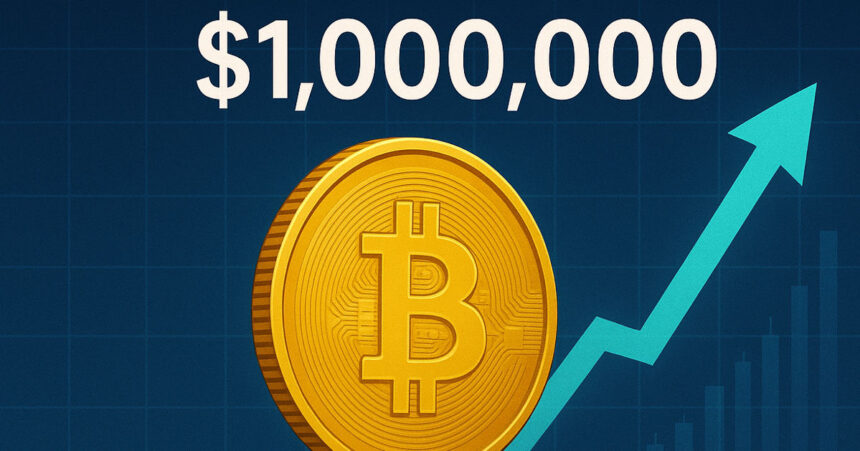Coinbase CEO Brian Armstrong has expressed a bold prediction regarding the future of Bitcoin, suggesting that the cryptocurrency could soar to $1 million per coin by the end of this decade. However, he emphasizes that this optimistic outlook hinges on maintaining regulatory clarity and resisting the influence of bank lobbyists intent on stifling the burgeoning industry. In a recent interview with Fox Business, Armstrong stated, “I think Bitcoin could reach $1M by ~2030 based on current conditions and progress.”
He identified several crucial factors that could drive the demand for Bitcoin, including regulatory clarity, the U.S. government potentially accumulating Bitcoin reserves, and the growing adoption of exchange-traded funds (ETFs) related to the cryptocurrency. Armstrong’s confidence in this price prediction coincides with ongoing legislative efforts in Congress aimed at establishing a more defined framework for the cryptocurrency market. Two significant pieces of legislation are under consideration: the Genius Act, which sets rules for stablecoins and was signed into law earlier this year, and the Clarity Act, designed to create a structured market for non-stablecoin assets.
Armstrong has actively lobbied on Capitol Hill, advocating for these measures, which he describes as “historic.” He attributed much of this progress to the efforts of former President Donald Trump and Senator Bill Hagerty (R-TN) in promoting the vision of the U.S. as the potential “crypto capital of the world.”
Despite this positive momentum, Armstrong raised concerns about the ongoing attempts by major banks to thwart progress in the crypto space. He highlighted the current campaign targeting rewards programs linked to stablecoins and Bitcoin, which he argues directly threaten the credit card rewards ecosystem that banks profit from. “Every company should be able to have reward programs, just like credit card points or airline miles,” he stated, contending that the banks’ attempts to ban such offerings are merely efforts to suppress competition.
Moreover, Armstrong emphasized that this debate over rewards is indicative of a larger clash between traditional financial institutions and emerging crypto frameworks. Traditional banks operate on closed networks, generating revenue through swipe fees, while payments facilitated by stablecoins and Bitcoin offer faster settlements and lower transaction costs. He believes that allowing crypto-based rewards could pave the way for a more normalized alternative financial infrastructure that operates outside of conventional banking systems.
Looking to the future, Armstrong has aspirations for Coinbase that extend beyond its current role as a cryptocurrency exchange. He envisions the company evolving into a comprehensive “super app” designed to replace traditional banking services. This platform aims to offer trading, asset custody, payment solutions, savings opportunities, and Bitcoin-denominated rewards. “Ultimately, we want to be a bank replacement for people. We want to be people’s primary financial account,” he affirmed.







